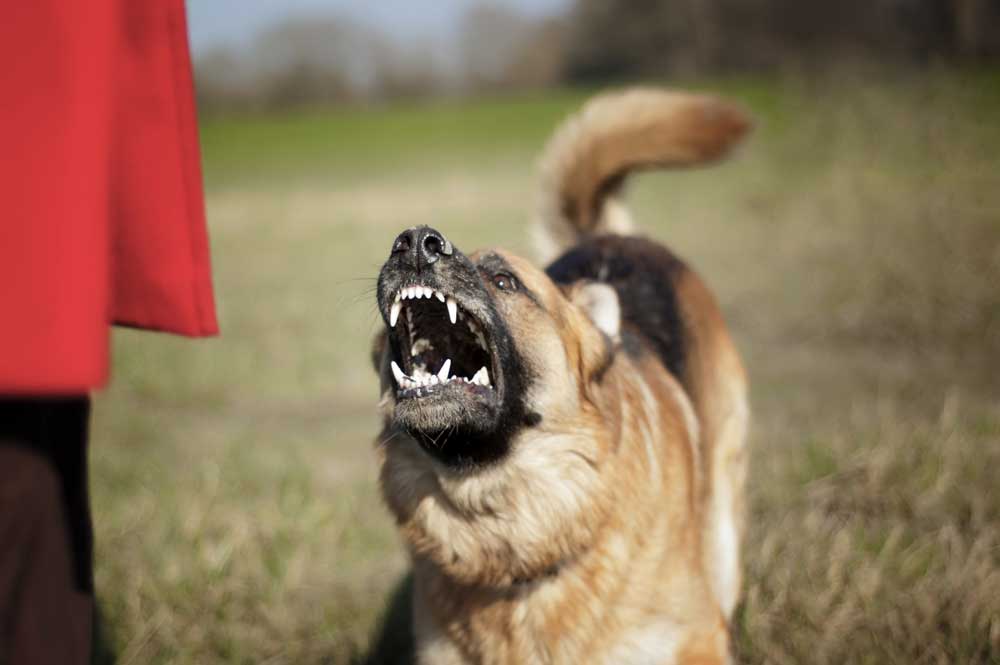
In New York, the rule has long been that a dog gets one free bite. More, specifically, if someone is injured by an animal, the victim is required to prove that the animal had previously shown a “vicious propensity” in order to recover from that animal’s owner. Likewise, when suing a landlord for harm done by an animal owned by a tenant, the injured victim has to show that the landlord was previously aware of the animal’s vicious propensity in order to recover. If the injured party cannot prove a prior known vicious propensity, the case will be dismissed.
Thus far, the courts have often denied recovery to persons injured by dogs who were off their leash in violation of leash laws. The courts dismissed a case where a child was bitten by a store owner’s dog in a store. The courts have also dismissed cases where dogs have escaped their owners’ yards and ran into traffic causing car accidents, injuring bicyclists and pedestrians. In each of these cases, the courts ruled there could be no recovery because the dog had not shown a prior vicious propensity for such actions.
A prior vicious propensity can be difficult to prove where the victim is a stranger to the dog and the owner claims the animal showed no prior bad behavior. One must conduct an investigation to uncover witnesses to testify about the dog’s behavior, or find proof of the behavior via records of the dog’s veterinarian, or prior complaint to the Board of Health.
In the Case of Hastings v. Suave (2013), the Court of Appeals somewhat loosened the vicious propensity rule by holding that the owner of a farm animal “may be liable under ordinary tort-law principles” when that farm animal is allowed to stray from the property on which it is kept. Therefore, if a cow wanders off a farm into a roadway causing a car accident, the occupants of the car do not need to show a prior propensity of the cow to wander off to recover for damages.
In the case of Hewitt v. Palmer Veterinary Clinic PC (2020), the Court has carved out another exception to the prior propensity rule. In this case, Vanilla, a dog, was being treated at a veterinary office. The veterinarian brought Vanilla into the waiting room when his treatment was finished; Vanilla got loose and went after a cat in the waiting room, causing defendant, Hewitt, to be injured. There was no evidence that Vanilla had ever shown a prior propensity for similar or vicious behavior. However, the Court of Appeals refused to dismiss the case. They ruled that “[The veterinary] is in the business of treating animals and employs veterinarians equipped with specialized knowledge and experience concerning animal behavior—who, in turn, may be aware of, or may create, stressors giving rise to a substantial risk of aggressive behavior. With this knowledge, veterinary clinics are uniquely well-equipped to anticipate and guard against the risk of aggressive animal behavior that may occur in their practices—an environment over which they have substantial control, and which potentially may be designed to mitigate this risk.”
While this ruling only applies to a very specific set of circumstances, it is a step in the right directions; however, New York is still the toughest state in the country to recover for injuries caused by an animal. A better rule would be one such as California’s, where the pet owner is strictly responsible for most dog-bite injuries, without the need to prove a vicious propensity. Such means owners can’t argue they didn’t know their dogs could be dangerous, or that they took care to prevent the animals from hurting someone. There are of course, exceptions to the rule, such as in cases of trespass, or if the victim caused the dog to bite. In New York though, in most instances a dog continues to get “one free bite.”
The law firm of Zalman Schnurman & Miner is experienced in handling animal bite cases. All consultations are free and all cases are handled on a contingency fee basis. For a free consultation call 1-800-LAWLINE (1-800-529-5463) or email us.